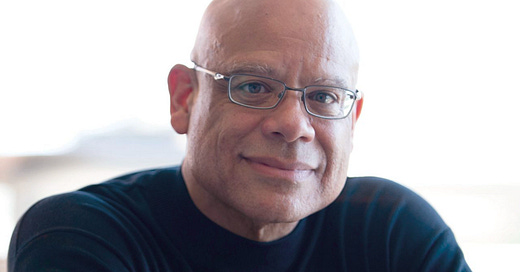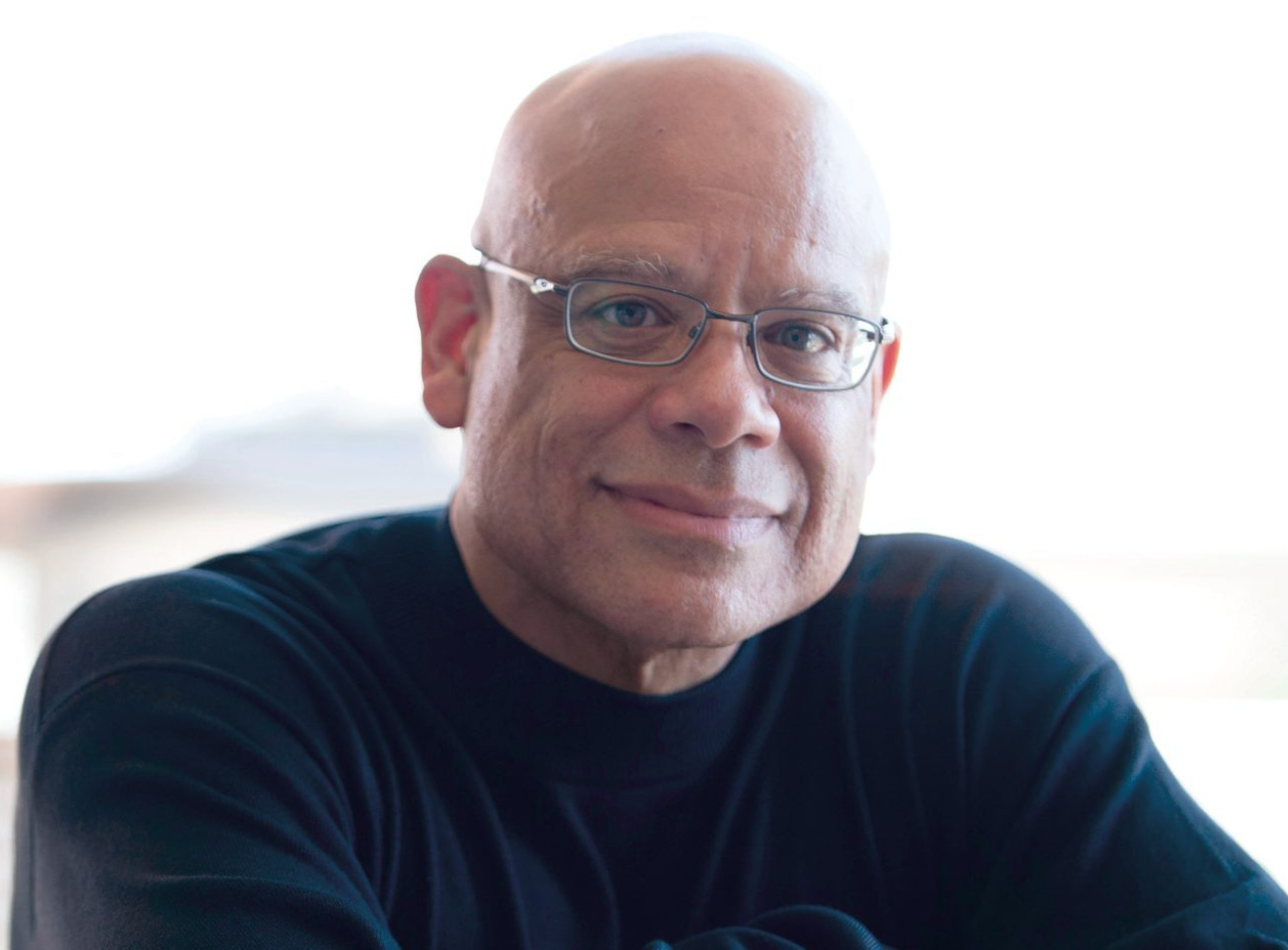Black Is Innovation
Welcome to issue #15! 💡
I am so glad that you all enjoyed our last issue about Black inventions and inventors that revolutionized our experience of “home”. We commissioned a brilliant Black illustrator, Brooke-Lynn Dortch, to create those amazing pieces. If you know a Black artist who would like to be featured, please email us at editor@blcktoschool.com.
Black To School is part of a broader movement focused on celebrating Black people and Black contributions around the world. The “Why?” that powers our mission is simple. “Our ancestors invented the table that the world now sits at. It’s time to not just claim our seat, but to set the agenda.”
A special thanks 🙏🏾 to the “Golden Griots'' (or top sharers) below for spreading the word about last week’s issue on the first human controlled chemical reaction in the world. Please keep sharing stories of #blackcontributions and our collective history within your networks!
Raina B.J.
Nimae A.
Nik R.
Kara S.
Dawn M.
Janet D.
Franklin O.A.
In this issue, we’ll:
Take a stroll down computer history lane to learn about the processing, packaging, networking, and software breakthroughs that power our lives.
Geek out with other Afro techies and expose the kids to coding.
Computing Giants
Contributor: Yang Forjindam
We all love headlines about hot, new technologies. Typically, the person on stage delivering the keynote at the developer’s conference is celebrated as a visionary. They are a rock star to techies and a unicorn to investors.
Everyone wants a great story with a single hero taking on the status quo. That’s why Steve Jobs’ masterful “Think different” resonated so deeply. The fact is though, with most innovation, especially computer and digital technologies, there is no one-man show. Thomas Watson, Andy Grove, Steve Jobs, and Bill Gates stood on the shoulders of giants to bring their innovations to life. You need many, many, many people who understand the way the world works, yet see things differently, and dare to pursue their dreams to successfully invent something new.
As an example, a typical desktop computer today has around 11 basic components, including a monitor, a motherboard, a CPU, memory, multiple USB ports, a power supply, an optical disc drive, a hard disk drive, a network card, a keyboard, and a mouse. Each one of those components have subcomponents like a motherboard has 10 parts. And so on. Then there are the ancillary systems and a variety of components that differ in size, color, shape, quality as well as the new generations of parts developed to increase performance and reduce costs.
Personal computing technology ultimately consists of innumerable discrete pieces, processes, integrations, invented and continuously improved upon by hundreds of thousands of technologists. Among them are a league of Black mathematicians, computer scientists and engineers who were born and raised in America, Africa and throughout the diaspora. They led and supported the creation and the evolution of 2 billion+ personal computing devices in households across the globe.
There is limited awareness about the pivotal role that these Black technology pioneers played. Despite their outsized contributions, their invisibility is uncannily similar to that of the Black, female human computers, now referred to as Hidden Figures, whose genius helped send rockets into orbit and land the first human on the moon.
Innovation is a team sport, which Black technologists have skillfully played from the beginning. It’s important to look beyond the surface presentation and behind the curtain to truly and fully understand how the products that we all now rely on came to be.
How much of your daily life runs on Black computing power?
Since well before IBM’s release of the first personal computer in 1981, there has been a long, storied list of Black inventors who have invested time, energy, and talent into advancing computer hardware, software, and networking. There is no better way to showcase and celebrate them than to reflect on how their work benefits us on a daily basis.
Below is a series of illustrative To-Do List items in which I demonstrate how the technology invented and enhanced by our community has become a form of oxygen for modern life and work. As I re-read and share it with you now, I am truly humbled and inspired.
Illustrative To Do List (May 16, 2021)
(Black computing inventions hyperlinked below)
Personal
Post GIF in the family WhatsApp group of Uma blowing out the four candles on her birthday cake.
Be home by 6pm in time for ADT to stop by and check the alarm system battery.
Pick up Mom’s new hearing aids; the prescription is stronger.
Call a family meeting about reducing screen time for the kids, especially video game playing time.
Check the weather forecast and confirm plans for the hike and picnic next weekend with our neighbors. Use GPS to map the drive to Chrissy Field.
Work
Buy 2 new domain names for each landing page in the marketing campaign.
Conduct video conference calls with a few promising candidates.
Order a desktop computer for the new hire, starting next week.
Reach out to IT to confirm when they will add memory and schedule the software security upgrades.
Review quarterly budget reforecast and add comments in GoogleSheets.
Community
Text-to-donate today before the HOA sunsets the building fund campaign.
Given all of the special effects in the movie Jurassic Park, confirm the PG-13 rating is ok with local parents for film night in the park this Thursday.
Attend the Council meeting today to learn more about plans for locating the cellular base station.

Zero to One
From mobile phones, personal computers, and video games to memory chips, security software, and special effects, Black engineers, computer scientists, and mathematicians have had a hand in expanding human capacity to do more things - faster and better. Reassured by this early groundwork and impact, another generation of Black inventors are following in their footsteps both within Big Tech and as venture-backed, tech entrepreneurs.
Personal computing has further democratized access to information. It has reduced the barrier to innovation and expanded the field on which more brilliant Black talent has come together to solve some of the world’s most challenging problems. Black technologists were one of the earliest pioneers of modern computing.
🛠️ The Black To School Toolkit
Now What? Dig Deeper with Friends, Family, and Others.
Interested in learning more about the history of personal computing? Check out this database of Black computer technologists, developed by Dr. Scott Williams at the University of Buffalo. Want more? Click here to read all about personal computing.
Ready to expose your kids to coding? Learn about how they can get involved in Black Girls Code (ages 7 to 17) and Black Boys Code (ages 8 to 17). Prefer to home school? Teach them how to code with robotics industry leader for kids, Dash and Dot.
Would you like to meet others who love tech? Attend AfroTech’s annual conference to network with Black techies from around the world who are looking to hire, collaborate with, and invest in the next generation.
Challenge yourself and build one. Channel your inner “Mark Dean” and use this “do it yourself” kit by Raspberry Pi to build your own desktop computer.
Want to geek out on the who, what & when? Check out this Computer History Museum timeline of some of the most significant milestones in the history of personal computing.
⌛ The Black To School Timeline
Black technologists were one of the earliest pioneers of modern computing.
We began in Ancient times (1 Million Years Ago) The Thing: Chemistry of Fire, our ancestors controlled combustion and used it to reinvent the way we live and work, together.
Then returned to the 19th Century (200 Years Ago) The Place: Home, the target location of countless inventions that expanded and delighted families around the world.
This week, we were in the mid 20th Century (55 Years Ago) The Process: Personal Computing, much like fire, computer technology gave us “superpowers”.
Next week, we will be in the Present Day (Here and Now) The Promise: CleanTech, we are now charting our course to a sustainable and regenerative future.
About This Week’s Contributor
Yang Forjindam
Yang is the Co-founder of PocketSuite, an all-in-one app that makes the hard work of running your own business simpler for solo operators and small teams.
Yang spent the first 11 years of his career at NetSuite building business management systems that helped 10,000 large and midsize companies run their front and back offices. He was engineer #5 and is still the youngest software architect in NetSuite's history.
Yang earned a master’s degree in engineering from Stanford University and a B.S. in electrical engineering from Virginia Tech. He has several patents in the area of SaaS and email delivery.
Yang was born in Paris and raised in Cameroon and the U.S.. He now lives in San Francisco with his wife, Chinwe, and two kids. He enjoys hiking, playing tennis, listening to music, trivia games, and debate. His other interests include history, military strategy, sports, technology, politics, international trade and economic policy.
Black To School has been a long time coming. I love that it explores a range of topics on Black history and current events from a position of strength that you rarely see covered by mainstream media.






